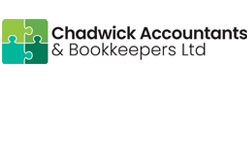Rachael goes on to explain that as a limited company, your business becomes a separate legal entity. “That means if something goes wrong - a client dispute, debt or contract issue - your personal assets are protected. Sole traders, by contrast, are the business. Any debt or liability falls directly on the individual. For some, that’s a level of personal risk worth rethinking as their business grows.”
Adding ‘Ltd’ to your business name isn’t just cosmetic. “In sectors like construction, consulting and professional services,” says Rachael, “it signals credibility and scale. Clients and suppliers often take ‘XYZ Ltd’ more seriously than a sole trader, which can make a real difference in winning contracts or negotiating deals.
And then, as ever, there’s the matter of His Majesty’s Revenue & Customs.
“HMRC’s Making Tax Digital programme is changing how small businesses report income,” warns Rachael. “From April 2026, sole traders earning over £50,000 will need to file five submissions per year (four quarterly updates and one final declaration). Those earning over £30,000 follow in 2027, and possibly £20,000+ in 2028.
“Limited companies, meanwhile, continue with one annual submission - a fraction of the admin burden. Add to that the need for approved software (no more spreadsheets), and it’s clear why many sole traders are looking to incorporate sooner rather than later.”
Rachael then goes on to explain that the term ‘family planning’ isn’t just confined to birth control.
“Tax is often the headline reason to incorporate,” she says. “But limited companies can pay directors a modest salary and take the rest as dividends - not subject to National Insurance - resulting in potential savings of thousands each year.
"There’s also flexibility in family tax planning. If your spouse, adult children or even retired parents help in the business, you can legally share income to take advantage of lower tax brackets. For family-run operations, this can be a smart and legitimate way to reduce overall liability.”
Operating as a limited company can also open financial doors. “Directors on payroll often find it easier to secure mortgages and business loans, as lenders prefer the stability of regular income and formal company accounts. Businesses that build up retained profits, assets and credit histories also enjoy better borrowing power than sole traders.”
Rachael’s final word on the subject? “Going limited does come with added admin of course: Companies House filings, confirmation statements, and clear separation between business and personal finances. But for those earning over £50,000 or looking to expand, the benefits often outweigh the paperwork.
“The bottom line is that there is no one-size-fits-all solution. As a sole trader, you can often keep things simpler and more flexible, while limited companies offer protection, tax efficiency and credibility.
“But if you’re ambitious, aiming for growth, and ready to professionalise your business, going limited could be the smartest move you make this year.”
























